MercoPress. South Atlantic News Agency
Tag: Argentina General Elections 2015
-
Monday, November 16th 2015 - 07:49 UTC
Presidential debate: not much substance but a clear fading of the Kirchnerite confrontation spirit
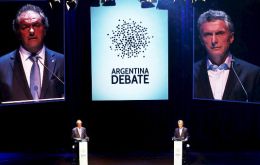
With a repeat of their respective campaign strategies, not much content, and less replies Argentina's presidential candidates, incumbent Daniel Scioli and opposition hopeful Mauricio Macri debated during 75 minutes in four main blocks following clearly established rules of two minutes presentations and one minute question and answer.
-
Saturday, November 14th 2015 - 12:48 UTC
Argentine analyst says 8% decide their vote on Election Day
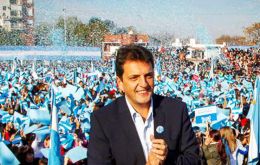
There is an 8% of voters who decide on ballot day whom they prefer and will support, and “they definitively decide the election, even more when it's a runoff”, according to Jorge Giacobbe an Argentine political pollster and analyst.
-
Saturday, November 14th 2015 - 12:29 UTC
The economy and the role of the state expected to be center piece of Argentina's Sunday presidential debate
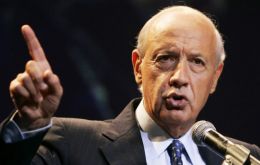
Sunday's presidential debate in Argentina will most probably concentrate on economic policy mainly for two reasons: one that the current system with a dollar clamp, export duties, heavy influence of the government and wild spending has the economy on the verge of collapse; but the option of orthodox policies with drastic cuts in spending, salaries and possibly jobs and consumption is also seen as fearsome.
-
Saturday, November 14th 2015 - 11:52 UTC
Argentina needs confidence and positive expectations to attract investment and develop
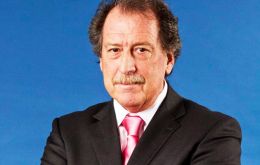
Any country, any economy needs confidence and positive expectations, and that is what is lacking, and has been lacking in Argentina for many years, said Jorge Brito, head of the Association of Argentine banks, who nevertheless warned about the impacts of a 'rough' adjustment on the economy.
-
Friday, November 13th 2015 - 07:46 UTC
The new Argentine congress will have a dominating 'Kirchnerite' presence
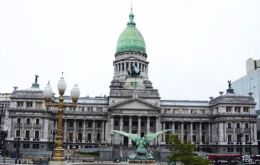
The recently elected members of Argentina’s new congress will be taking the oath on 3 December, and numbers show that the current coalition of president Cristina Fernandez, Victory Front, will retain the first minority in the Lower House, while it will enjoy a comfortable majority in the Senate.
-
Thursday, November 12th 2015 - 08:44 UTC
Sunday's presidential candidates' debate decisive for Argentina's runoff on November 22
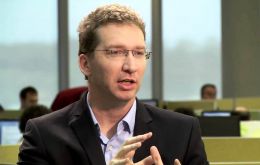
The director of one of the most reliable pollster organization in Argentina anticipated that the 22 November presidential runoff is still an open race despite the fact the incumbent candidate Daniel Scioli is running several points behind his rival and opposition candidate Mauricio Macri.
-
Wednesday, November 11th 2015 - 07:35 UTC
Uruguay hopeful of a more 'flexible' Argentina whoever wins on 22 November
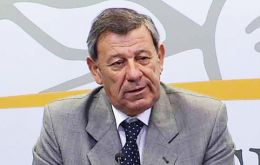
The Uruguayan government is hopeful that with president Cristina Fernandez no longer at the helm of Argentina, as of 10 December, a more flexible attitude can be expected from the newly elected authorities, particularly regarding Uruguay's intention of signing trade agreements with third parties, if Mercosur is not interested in such commitment.
-
Wednesday, November 11th 2015 - 07:25 UTC
Argentine agro-business shares booming on presidential candidates' pledges
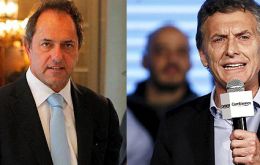
Argentina's agro-business shares are booming in the Buenos Aires stock exchange since 26 October, following the first round of the presidential election, and expectations are even greater on the promises from the two candidates that will be disputing the runoff on 22 November.
-
Monday, November 9th 2015 - 07:58 UTC
Macri leads by eight points, but one in ten voters remains undecided, says poll
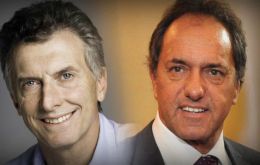
With two weeks to Argentina's presidential runoff on 22 November and to decide who will succeed Cristina Fernandez on 10 December, opposition candidate Mauricio Macri has a several points lead over the incumbent Daniel Scioli, although there still is a significant percentage of undecided voters, according to a public opinion poll released on Sunday.
-
Saturday, November 7th 2015 - 07:48 UTC
YPF focusing on boosting natural gas production; investors waiting for “post-election clarity”
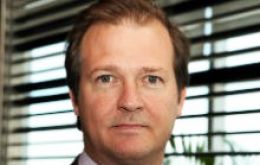
Argentina's state-run energy company YPF said on Friday it plans to focus on boosting natural gas production in 2016, while also pursuing a gradual reduction in drilling and completion costs and looking for more partnerships for shale and tight play projects. It also admitted that potential investors are waiting for post-election clarity on economic and energy policies before “making any decisions”.
